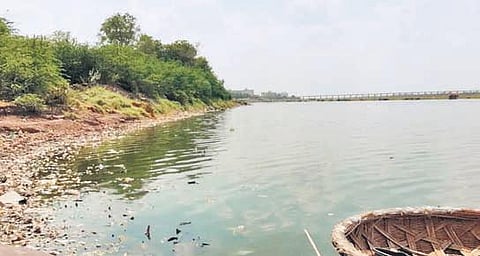

COIMBATORE: Water conservationists in Coimbatore have urged the district administration to establish a clear framework identifying the appropriate authorities responsible for each waterbody in the area.
They said they are experiencing challenges because neither the Rural Development Department nor the Water Resources Department (WRD) or Revenue Department knows which authorities oversee specific waterbodies.
The conservationists said that confusion arises during waterbody rejuvenation efforts as they are often redirected between these departments due to a lack of clarity.
"Whenever we need approval for rejuvenating waterbodies we have to categorise the waterbody whether it falls under the Rural Development Department, the Revenue Department, or the WRD. Based on this classification, we submit requests to the respective departments to carry out the necessary work.
However, often the requests we submit to the Revenue Department are redirected to the WRD, which then sends them back to the Revenue Department because of the ongoing confusion regarding the authority overseeing specific water bodies. To avoid this confusion and delays, the district administration should clarify which waterbodies fall under which authority," said PK Selvaraj, President of the Athikkadavu Kousika River Development Association.
Selvaraj said that waterbodies larger than 99 acres generally fall under the jurisdiction of the WRD, while smaller ones are managed by the rural development and revenue departments.
When asked about this issue, District Collector Pavankumar G Giriyappanavar stated that a master database detailing the ownership of water bodies is available within the district administration. He said that if there are specific concerns, they can be addressed.
Furthermore, he said the district administration, in collaboration with NGOs, plans to launch a website to facilitate community initiatives like improving schools and waterbodies.
"People interested in community work can express their interest on the website, where the concerned authorities will provide the necessary no-objection certificates and guidance. This will serve as a platform to coordinate efforts among NGOs, private firms, and officials to carry out welfare programmes more effectively," he said.